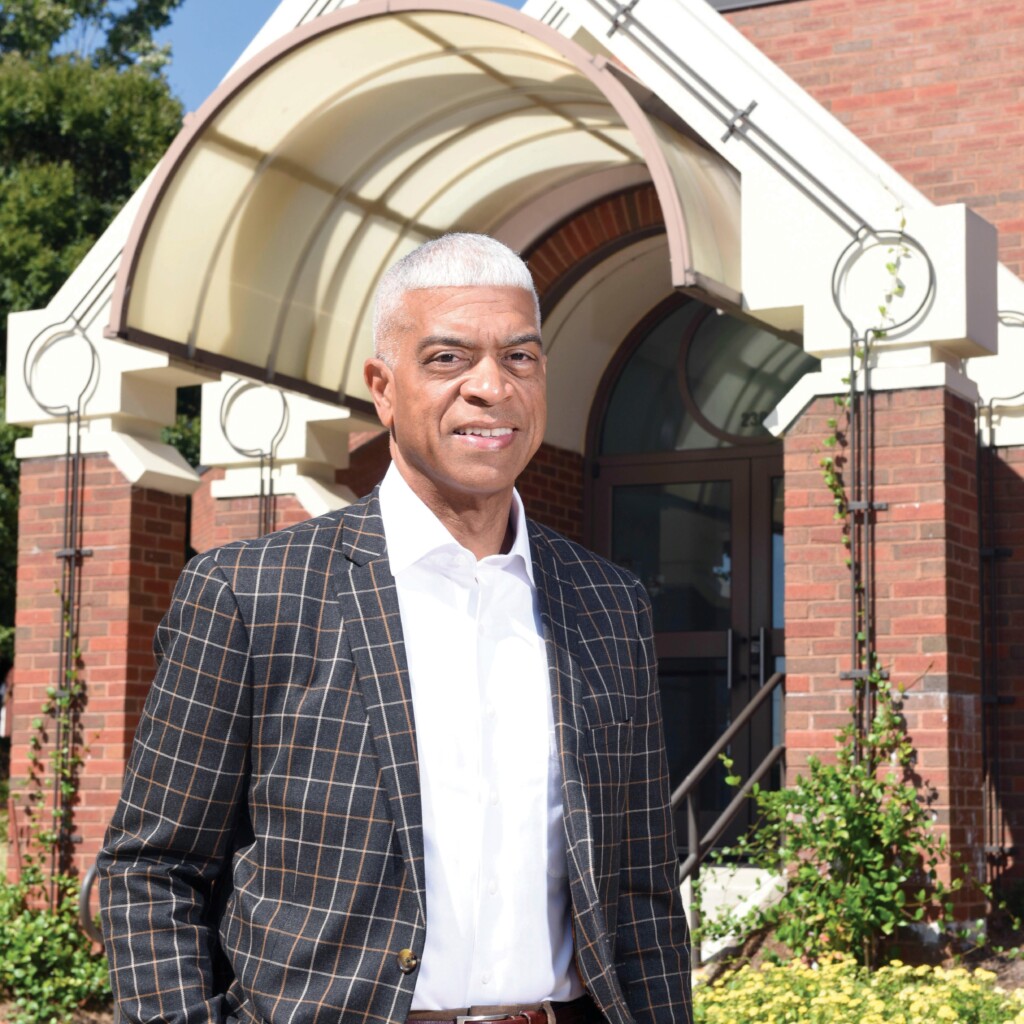Franklin County | Leveraging Growth
Industry, Hospitality and Higher Ed
Franklin County in Northeast Georgia is a place of natural beauty and abundant history – a promising backdrop for a new era of  opportunity. The county is home to two state parks, covering a combined 895 acres and offering fishing, golf, camping and other activities in a picturesque setting. It boasts an original Andrew Carnegie Library and a museum honoring hometown hero and baseball legend Ty Cobb. The county was named after Benjamin Franklin, and in 1783, it became the ninth county in Georgia. And now it is ready for the right kind of growth.
opportunity. The county is home to two state parks, covering a combined 895 acres and offering fishing, golf, camping and other activities in a picturesque setting. It boasts an original Andrew Carnegie Library and a museum honoring hometown hero and baseball legend Ty Cobb. The county was named after Benjamin Franklin, and in 1783, it became the ninth county in Georgia. And now it is ready for the right kind of growth.

Train Town: Lavonia Mayor Courtney Umbehant at the former Southern Railroad Depot, which now houses a welcome center and offices, photo widoffphoto.com.
Lavonia, one of Franklin County’s five cities, is an example of honoring the past while preparing for the future. Its historically significant sites include the Southern Railroad train depot and former Gov. Ernest Vandiver’s home. It is the smallest city in the U.S. that has an original Carnegie Library.
“Lavonia’s an old train town,” says Mayor Courtney Umbehant. “It was named after the wife of the gentleman who owned the railroad. We’re really proud of our train depot and train heritage.”
The railroad positioned the city to become a thriving cotton market, and today it remains the commercial and industrial hub of Franklin County, according to Umbehant. From manufacturing to poultry processing and everything in between, Lavonia is a city on the rise, Umbehant says.
“We’re really excited about the things going on in Lavonia,” he says. “Most of the industry in Franklin County is located in Lavonia, as well as most of the commercial business, and that’s because of the foresight that previous administrations had. They made sure infrastructure was in the right places for growth, so when growth came, Lavonia would be in a position to take advantage of those things.”
Jarrett Foods, a poultry-processing company, is investing at least $14 million in a new 53,972-square-foot facility in Lavonia, which is expected to create 70 jobs when it opens later this year, with approximately 300 jobs created by March of next year.
“On the commercial side, Whataburger and Starbucks are in the process of building along the interstate corridor,” Umbehant says.
Umbehant notes that the city has “always had a huge housing shortage, especially compared to the amount of industry,” but says about 800 new housing units have been approved, including what will eventually be a 300-unit apartment complex.

Industry Asset: Tonya Powers, executive director of the Franklin County Industrial Building Authority, at Carry-On Trailers, photo widoffphoto.com.
“Most of that is multifamily; however, development has not begun on the vast majority of that,” he says. “We would like to see more single-family homes developed, but we’ll see what the market will bear.”
Jobs, a vibrant downtown and proximity to both I-85 and the 55,590-acre Lake Hartwell are all contributing to the city’s growth, the mayor says. Tugaloo State Park is a 393-acre wooded peninsula that juts out into the lake, less than 10 miles from downtown Lavonia.
“Since 1970, eight years before I was born, Lavonia has grown by less than 100 people,” Umbehant says. “Now, [in 2023] we have exceeded that amount, and we expect [2024] will be a larger increase.
“I’m most proud of our people, the hospitality that they show everyone that comes into Lavonia. That’s what separates our city from most others.”
Economic Development
That same hospitality is extended county-wide when it comes to recruiting – and keeping – business and industry. Lavonia-based Carry-On Trailers is one of several expansions and recent economic development wins for the county. The company is one of the area’s largest employers and is adding a larger facility in the Central Franklin Industrial Park, says Tonya Powers, executive director of the Franklin County Industrial Building Authority (IBA).
The IBA also recently sold a 20-acre site at the Gerrard Road Industrial Park to sheet metal manufacturer Alliance Supply and Piping for the production of a new product line. The expansion will create at least 30 new jobs, Powers says, adding that an automotive parts manufacturing company is investing $29 million and creating 60 new jobs in the industrial park.
Manufacturing companies, particularly those in the automotive sector, are top prospects for future industrial growth, Powers says.
“We have a lot of prospects right now that are suppliers to SK Battery, which is right down the road from us,” she says. “We also just purchased a 93-acre site on rail. This is a huge asset; I can’t brag about this enough.”
The Hartwell Railroad is a short line that connects to CSX and Norfolk Southern railroads, according to Powers. The rail line runs straight across the front of the site, which will be a new industrial park, she says.

Hometown Hero: The Ty Cobb Museum in Royston features one of the baseball legend’s uniforms, photo Ty Cobb Museum.
“There will be manufacturing and warehousing components together,” Powers says. “We will have the capability to put a 1 million-square-foot building on that site.”
Attractions and Education
From business to baseball, success is part of Franklin County’s DNA. Royston is home to The Ty Cobb Museum to honor the memory of the first inductee into the Baseball Hall of Fame, who grew up there. The local healthcare system also bears his name. Royston is the largest city in Franklin County with a population of around 2,500. Less than five miles from downtown is the 502-acre Victoria Bryant State Park, which includes the Highland Walk Golf Course.
Just two miles down the road from Royston is Franklin Springs, a once-popular travel destination because of its springs that contain three types of water: mineral, sulfur and freestone. When the reputation of Franklin Springs as a health resort diminished because other health remedies became available, the Springview Hotel was sold, and in 1919 the former resort became the home of Franklin Springs Institute. It was later renamed Emmanuel College and, in July 2023, Emmanuel University.
“The college has been in the community over 100 years,” says Mayor Levy “Lee” Moore. “The college came about first, then the city came after the college. Franklin Springs is where the professors and staff of the college lived.”
Emmanuel College became a four-year institution in 1998, and in July, it added graduate programs and was designated as a university, says President Greg Hearn.
“We have a strong school of education, and graduate programs in the education field were the first ones we added,” Hearn says. “We’re in the process of rolling out more graduate programs, including a Master of Ministry degree and a Master of Divinity degree. Both of our graduate degrees in ministry are online and will launch in the fall.”
The private Christian liberal arts university enrolls about 900 students and fields 32 NCAA Division II athletic teams, according to Hearn,
“We are a faith-based institution and so we try to promote and include Biblical values in our curriculum,” he says. “We also have a very large athletic program and that creates a lot of opportunity for athletes to fund a college education. The athletic scholarships we provide create quite a bit of access.”
The university is an integral part of the fabric of the community, as athletes perform service projects to give back to the community and the university choir hosts a free Christmas concert, Hearn says.
Small Town: Big Business

Local Studio: Jagged Rock Media, housed in Franklin Springs, offers photography, video production and more, Jagged Rock Media.
As a result of its residential roots and proximity to Royston, Franklin Springs doesn’t have its own downtown square but “shares” Royston’s, according to Moore. The lack of a square, however, has not kept businesses big and small from finding Franklin Springs.
“One of the biggest businesses that’s located in the city is Fox Factory,” he says. Fox Factory manufactures performance products for mountain bikes, ATVs, snowmobiles, motorcycles and more. “It’s a billion-dollar business. And Rocky Ridge [custom-built] trucks [are also made] here in Franklin Springs.”
Franklin Springs is also home to Jagged Rock Media (JRM), a creative house and studio offering photography, video production, post services, creative direction, graphic design and print collateral.
JRM was founded by Chief Creative Officer Charles Powell in 2004, initially producing network television content in Nashville before building a studio and creative house in Franklin Springs, where it moved its operations in 2011. The company has produced content for brands including Nissan Trucks, Oakley and Orvis.
“Franklin Springs is the perfect location [for] a high-tech studio facility,” Powell says. “The availability of a skilled workforce is key to our success, and our new hires from Emmanuel University and UGA are playing an important role in our rapid evolution.”
Meanwhile, Moore says residential growth has been slow and controlled. For the last few years, the city has been focused on growing its industrial base, purchasing close to 300 acres for industrial use.
“We want to attract industry that will fit into who we are,” he says. “We’re a very ag-based county and institutionalized city [regarding higher education], so [we seek] industry that is agriculture-based, technology-based, AI-based. These all offer great opportunities for great jobs.”
According to Moore, thousands of Franklin County residents drive as many as 80 miles outside the county to work. They commute to jobs in places like Atlanta and South Carolina, he says.

Faith-based Institution: Emmanuel University, a private liberal arts school in Franklin Springs, has around 900 students, photo contributed.
“Right now, around 7,000 people drive out of Franklin County for a job, so if we provide opportunities to have a great job at home, that just makes us as a city and a county that much stronger,” Moore says.
Not only does industry provide the opportunity for new jobs, it also enhances the community because it helps support the city’s infrastructure like water, fiber, sewer, natural gas and public safety, the mayor says.
“Bringing good industry in helps provide all that to Franklin Springs,” Moore says. “We’re currently in the process of building a 3 million-gallon-a-day wastewater treatment facility,” which he says will cost more than $30 million. “We’re doing that for the industrial growth that is coming and planning for the future, for the next 20 years.”
Franklin Springs is celebrating its 100th anniversary this year.
With a strong sense of heritage, Franklin County is building a future where residents can live, work and play, business and industry can thrive, and visitors can enjoy unlimited recreational opportunities.
Local Flavor
The Nuts and Bolts of Success

Made in the USA: Atlanta Rod and Manufacturing President Jon White and General Manager Chase Wilson, photo widoffphoto.com.
The manufacturing of nuts and bolts may sound pretty basic, but the projects they help build can be history in the making. Just ask Jon White, the president of Atlanta Rod and Manufacturing, which employs 100 people in its Franklin County headquarters. From Mexico City to Miami and from Canada to Australia, the company has made nuts and bolts for projects worldwide.
White’s parents started the company in Doraville in 1981, before moving the operation into an old chicken house in Cumming. “My parents saved up $4,000 and we lived in the warehouse where the business started,” White recalls.
In the early ’90s White moved the company to Franklin County where serendipity and history collided to make Atlanta Rod and Manufacturing an industry leader. “We came up to buy some equipment at an auction, and we bought the property in ’92,” he says. “Then the Olympics came in ’96, and it was a fortunate time for us. We made a lot of bolts for different construction projects around Atlanta … As Atlanta continued to grow, we were one of the only companies in America that still made bolts.”
According to General Manager Chase Watson, the company manufactures 150,000 pounds of bolts a day, or nearly 45 million in a year, at its 200,000-square-foot manufacturing facility.
Through the years, the company has continued to make its products in the U.S., and by doing so has earned a seat at the table for national policy discussions around domestic production of steel. Atlanta Rod and Manufacturing was instrumental in helping to sunset a waiver that allowed foreign-sourced fasteners to be used in federally funded water projects.
In short, when the EPA issued the American Iron and Steel Provision requiring all federally funded water projects be built with American steel, contractors said they couldn’t find domestically produced stainless steel fasteners, so a waiver was put in place. Once White and Watson caught wind of the waiver, they reached out to the EPA saying they could help, and along with other U.S.-based manufacturers, could support the fasteners being made here.
About four years ago, the EPA allowed the waiver to sunset, and today, all federally funded water projects are required to have domestic fasteners, according to Watson. “It was a big win for us and our industry,” he says. Last summer, White and Watson were invited to the White House to talk about their experience with the EPA.
In addition to the company’s unwavering commitment to domestic production, White says he is equally committed to the people making the products.
“I spend a lot of time thinking … would I ask my favorite nephew to do that job, and if the answer is ‘no,’ I need to change that job,” he says. “The people are the company; I think that what keeps us in Franklin County are the people of Franklin County.” – Jennifer Hafer
georgiatrend.com February 2024
LOCAL FLAVOR









